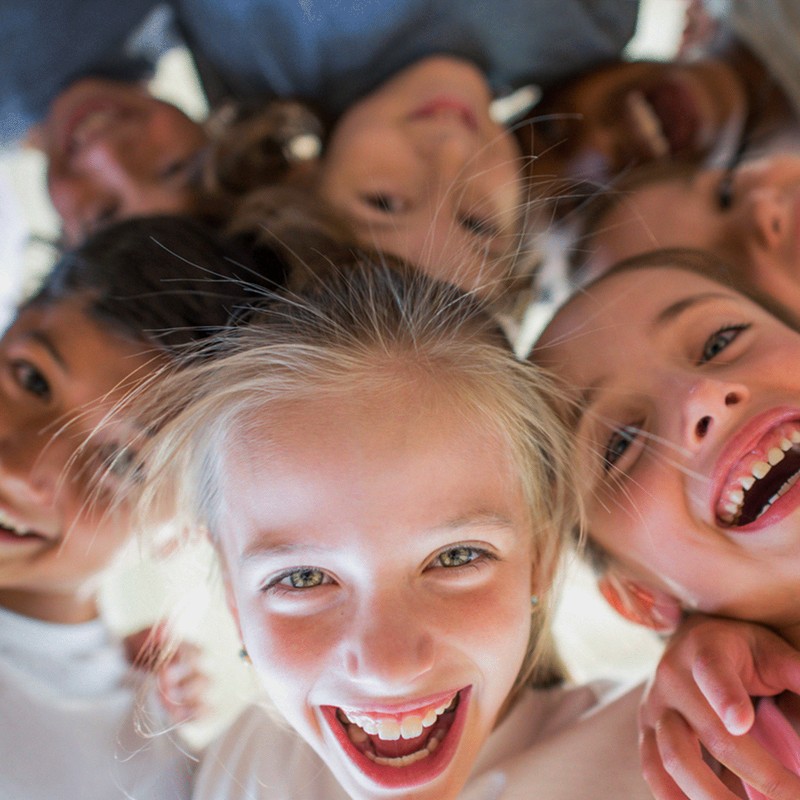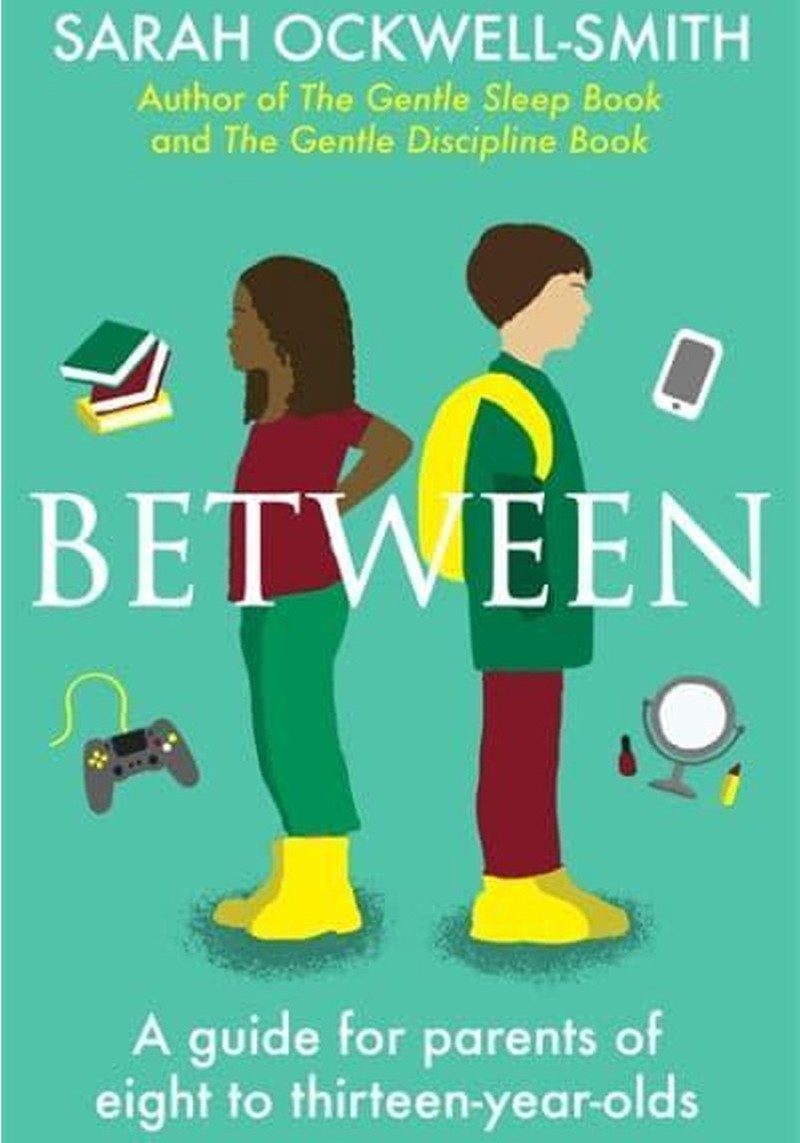
How To Raise A ‘Tween’, According To A Parenting Expert
What are the ‘tween years’ and why are they a crucial stage for children?
The tween years are those between eight and 13 years. They’re incredibly busy physiologically and psychologically. You’ve got puberty, changing bodies, changing hormones and changes in brain development happening on the one hand, and you’ve also got huge transitions happening in the child’s life, like starting secondary school, changes in friendships, budding romantic relationships, and a gradual shift away from parents being the centre of the child’s world. There are also things like screen time and social media to contend with – things you probably haven’t worried about before now.
Why are the teenage years so difficult for parents to navigate?
The tween and teen years can trigger a huge number of difficult emotions. When children do something we ourselves used to do and would have been strongly chastised or punished for doing, it brings up all sorts of unresolved feelings. We tend to subconsciously parent our kids the same way we were raised as children. So, these years are a sort of pull between trying not to be like our parents (having vowed to be kinder to our kids) and also subconsciously turning into them. We also have far less support, far less information and are usually doing it with full-time work, no parental leave and no childcare. This time might be physically easier than the baby, toddler, and preschool years, but emotionally they are so much harder. The constant need for us to ‘be the adult’, calm our tempers and know the answers, while supporting emotionally unstable kids with a constant stream of problems, is difficult. Put simply, these years can be exhausting.
What are the common misconceptions about the tween years?
In our society, we’re pretty tolerant of younger children when it comes to their behaviour and we tend to treat them kindly when they make mistakes. When children start to become as tall as us and start to look at lot more like us, we start expecting them to behave like us and to be able to think like us – but they just can’t. They are still more like a toddler than an adult, cognitively speaking. We really need to lower our expectations and be much more accepting and understanding of their behaviour. We also need to reduce the amount of punishment and harsh discipline we aim at them; it just doesn’t work, as the underlying causes of their behaviour come down to simply having a tween – not an adult – brain. That doesn’t mean we should be permissive; we just need to be mindful with our boundaries and discipline.
Why are the tween years overlooked when it comes to parental advice?
Most people seem to think parents have things sussed by the time their child is six or seven years old. There is a mistaken belief that parents of older children all know what they’re doing. There’s also a myth that older children are easier than babies and toddlers – after all, they’re toilet trained, sleep through the night and don’t have such intense physical need for their parents. The thing is, it isn’t easier as they get older – it’s simply different. Little kids have little problems, big kids have big problems. Also, because most parents are back at work, the parent and baby groups have all stopped, with the presumption being parents no longer need or want parenting-related information. In my experience, that’s absolutely not true.
It’s ridiculous that there are thousands of books, courses, social media groups and classes for parents of babies and toddlers, even preschoolers, but once your child turns school-age, the support and advice just drop off a cliff edge. You’re very much left floundering and trying to work things out yourself at a stage where your child’s problems are much bigger than they were in the early years.
Your book ‘Between’ talks about ‘typical’ tween behaviour – what are some examples of this?
Most parents of tweens are familiar with backchat and rudeness, sulks and whining, lots of door slamming and lots of ‘I hate you’. This is also the age where, typically, they start to swear. Tweens have really poor impulse control and poor risk assessment skills, so they tend to do some pretty stupid things and make bad choices – including refusing to do homework or tidy their room. You also see shifts in their sleep patterns, such as staying up late and waking up later in the morning.
How much sleep should children get at this age?
Anywhere between seven and 12 hours per night. We actually tend to overestimate the amount of sleep children need as they get older, and are therefore reluctant to move their bedtimes back, which often results in more bedtime procrastination. Generally speaking, a good bedtime for a tween would be around 9pm at the younger end and 10pm at the older end.
Screen time is a hot topic, what should parents do if they think their child is spending too much time online?
First, we must look at what sort of a relationship we ourselves have with screens. Most adults use screens too much, have too few boundaries and are addicted as well. It doesn’t matter what we say to our children if we’re poor role models ourselves. Starting with some family house rules about screen time is good – set the same boundaries that everyone can follow and lead by example where possible. Make full use of parental controls on your Wi-Fi and any gaming consoles and phones or tablets too.
How do you monitor time spent on social media?
Social media sites and online games that have social interaction with strangers all have a minimum age guideline – mostly 13 years and up – for a reason. The best thing to do is to explain this to your tween, and importantly why these rules exist. Empathise with their disappointment and frustration but stick to your boundary. Grab any chance to talk about screen time safety, including interactions with strangers and staying safe online and make sure your kids know they can – and should – talk to you if anything makes them feel uncomfortable when they’re online. A good way to start off initially is to make sure that they are online in your family living area, so you can overhear their interactions and step in if necessary.
What are some of the hardest topics to talk to children about at this age?
Anything related to sex and genitals! This again goes back to our own upbringings and how we were taught about these subjects – often we were just given a book to read, or it was left to school to teach us. If we were raised to be embarrassed about our bodies and their sexual functions, it can be hard to overcome these feelings and discuss things openly with children.
Okay, so how should parents talk to their children about puberty?
It should be done as early as possible. Ideally, parents will be talking to their children about sex, bodily changes and things like menstruation early on. The more you’re open and honest with your child and answer their questions when they’re presented, the easier it is to avoid those big awkward conversations when they’re older. If you haven’t done that, then taking those natural opportunities when they present themselves and having several smaller conversations is best.
What are the ‘Tanner Stages’ and why is it important for parents to understand them?
Tanner Stages refer to the specific stages of puberty that children go through. Specifically, it measures where a child is on a puberty scale by looking at the development of secondary sexual characteristics – things like pubic hair growth, breasts, and testicle size. We’ve all been through puberty ourselves, so theoretically, we should have a fairly good idea of what’s happening to, or going to happen, to our children. However, most of us probably weren’t very well educated about our own bodies. Understanding puberty – and discussing it with your children – is really important if we want to raise children who are at home in their bodies and also to be able to spot anything outside the realms of normal development.
What's the most important thing parents can teach their kids about body positivity?
That we are all wonderfully different and that our worth is not measured by how much we do – or don’t – look like a stereotyped ideal.
If your child is struggling to make friends during this age, do you have any advice?
In Between, I talk about relationships, including friendships, always starting with the relationships we have with ourselves, so start by helping your tween improve their self-esteem and self-confidence. If a child feels happy and confident in their own skin, they are more likely to have positive friendships and be able to stand up for themselves if any friendship issues do occur.
What are some of the most important things to keep in mind when raising a tween?
We actually all have expert knowledge in this area, because we were all tweens once – think back to how you felt and what you needed at that age and be the adult you really needed when you were younger. Don’t expect too much of your tween, just because they look like an adult, their brain is nothing like yours. Remember, the relationship you have with your tween now will be the foundation for the relationship you have with them for the rest of their, and your, life. These years are all about understanding, empathy, and connection, especially when they’re behaving ‘badly’. The tween years teach us a lot about ourselves, especially our level of patience and triggers from our own upbringing, but we must be the adult in the situation and remember that we are our tween’s role model.
What advice would you give to parents who are finding this stage particularly difficult?
Most parents find these years difficult; we just aren’t very honest about it. Knowing you’re not alone is an important first step. Next, having a really good understanding of what’s happening to your child’s brain development at this age is key, because it helps you to reset your expectations of them – expectations are the cause of so much stress and angst for parents of older children, which is why I spend so much time talking about them in the book.
Finally, what’s the transition like from tween to teen? Are there any stages to look out for?
If you get the tween years sussed then the teen years are pretty easy. It’s all about the relationship you have with your child as they enter the teen years. If you’ve worked hard earlier to stay connected and have a strong, communicative, supportive, and honest relationship with your child, then you start to reap the rewards in the teen years. Essentially, there is little difference between tweens and teens and most of the contents of the book still apply right up to 18 years and beyond. I hope Between will help parents to empathise more with their tweens and be a little kinder to them, recognising that most of the really irritating tween behaviour really isn’t the child’s fault. I also hope that it will make parents feel more informed and ready to take on the challenges of this age range and beyond with confidence.
Between: A guide for parents of eight to thirteen-year-olds is available at Waterstones.com
Visit SarahOckwell-Smith.com
CREDITS: ISTOCK/FAT CAMERA
DISCLAIMER: We endeavour to always credit the correct original source of every image we use. If you think a credit may be incorrect, please contact us at info@sheerluxe.com.
All products on this page have been selected by our editorial team, however we may make commission on some products.

/https%3A%2F%2Fsheerluxe.com%2Fsites%2Fsheerluxe%2Ffiles%2Fwebsite-images%2F2025%2F04%2Fnew-parenting-background-image.jpg?itok=au3AjSlw)